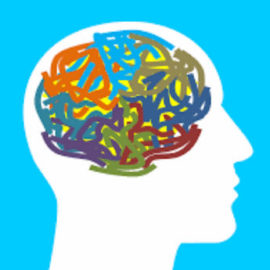
Do want to feel more alive? Why do some days feel more vibrant and meaningful than others?
Feeling alive isn’t about seeking thrills or making dramatic life changes; it’s about understanding what drains your energy and discovering simple ways to reconnect with life’s natural vibrancy. In You Only Die Once, Jodi Wellman shares practical steps anyone can take to revitalize their daily experience.
Read on to discover proven strategies that can help you transform mundane moments into opportunities for genuine aliveness and joy.
How to Feel More Alive
Wellman defines vitality as a positive sense of aliveness and energy that fuels your zest for life, enabling you to fully engage with the world and live a life filled with joy, excitement, and novelty. She shares advice on how to feel more alive every day.
Break Habits That Dull Vitality
Wellman argues that habits can undermine vitality by keeping us on autopilot. While they provide structure and comfort, habits can dull life’s vibrancy, leading to boredom and a lack of fulfillment. To combat this, Wellman advises reassessing and adjusting habits that don’t benefit you, highlighting excessive social media and screen time as major culprits.
(Shortform note: While Wellman raises valid concerns about habits potentially dulling life’s vibrancy, James Clear, author of Atomic Habits, presents a counterargument for the essential role of habits in personal growth and achievement. Clear contends that by automating routine decisions and basic tasks, habits free up mental energy for more meaningful pursuits and creative thinking. So instead of being potential barriers to vitality, strategic habits can enhance vitality by reducing decision fatigue and creating a foundation for more enriching experiences. The key lies not in avoiding habits altogether, but in intentionally designing them to support rather than hinder our desired way of living.)
Wellman also warns that prioritizing work and financial gain at the expense of personal time and leisure can lead to burnout and a diminished quality of life. Skimping on vacation, for instance, not only robs you of rejuvenation but statistically, as Wellman points out, shortens your lifespan.
(Shortform note: Research supports Wellman’s assertion that not taking time off is linked to a shorter life expectancy. The Helsinki Businessmen Study, which followed executives for 40 years, found that those who took fewer than three weeks of vacation annually had a 37% higher chance of dying compared to those who took more time off.)
Strategies to Increase Vitality
Wellman offers several strategies to inject novelty into your life in order to help revive your sense of wonder and engagement with the world.
1) Break away from your routine and add a little spontaneity to your life. Leaning into your curiosity is one way to keep life new and exciting. When you’re always on the lookout for new information or things to learn, the world can’t help but feel fresh. Wellman emphasizes that adding a touch of novelty doesn’t require grand changes; even minor shifts, like reading a book in an unfamiliar genre or trying a new recipe, can refresh your perspective.
(Shortform note: Why do spontaneous activities feel more exhilarating and add more vitality to life? Compared to expected pleasures, unexpected positive experiences trigger the release of higher levels of dopamine, a neurotransmitter associated with pleasure. Additionally, breaking from routine stimulates neuroplasticity, leading to the formation of new neural pathways in the brain. Moreover, the hippocampus—that part of your brain responsible for memory—focuses more on experiences that diverge from expected patterns, making spontaneous moments more likely to become long-term memories.)
2) Get moving. Wellman says that incorporating more movement into your daily life—whether through walking, dancing, or spontaneous physical activity—can significantly enhance your sense of aliveness.
(Shortform note: Exercise is sometimes viewed as a chore, but research indicates that movement is essential for our emotional and physical well-being. Regular physical activity boosts both mood and energy levels by releasing endorphins, improving circulation, and enhancing brain function. Even small amounts of movement can disrupt the cycle of lethargy. Studies show that brief walks can instantly boost creativity, reduce stress, and increase vitality. The key is to find enjoyable forms of movement that feel less like an obligation.)
3) Prioritize leisure and play by joining a club, pursuing hobbies, or simply setting aside time to relax and enjoy life. This invites relaxation and joy into your daily routine. One of Wellman’s favorite strategies for incorporating playfulness is to take time off to celebrate random days, such as half-birthdays, the summer and winter solstices, or even National Talk Like a Pirate Day. These occasions offer a fun excuse to unwind and embrace a bit of silliness.
(Shortform note: Tricia Hersey, author of Rest Is Resistance, emphasizes that rest is not only a physical and emotional necessity but also a powerful form of resistance against oppressive systems. According to Hersey, resting is an act of defiance against the relentless demands of “grind culture” and capitalism, which prioritize constant productivity over well-being. She argues that rest can be a pathway to reclaiming our humanity and inherent self-worth, regardless of how “productive” we are.)
4) Surround yourself with the right people. Wellman recommends finding a role model who inspires you to try new things. Spend more time with people who ask good questions or make you laugh, and less time with the people who leave you drained.
(Shortform note: Jim Rohn, author of 7 Strategies for Wealth & Happiness, argues that we become the average of the five people we spend the most time with. He believes that our social circle significantly influences our attitudes, behaviors, and life outcomes. According to Rohn, successful people intentionally curate their relationships by seeking mentors and peers who align with their aspirations while distancing themselves from negative influences. He emphasizes that this selective approach to relationships is not about elitism but about fostering an environment that nurtures growth and supports personal development.)






